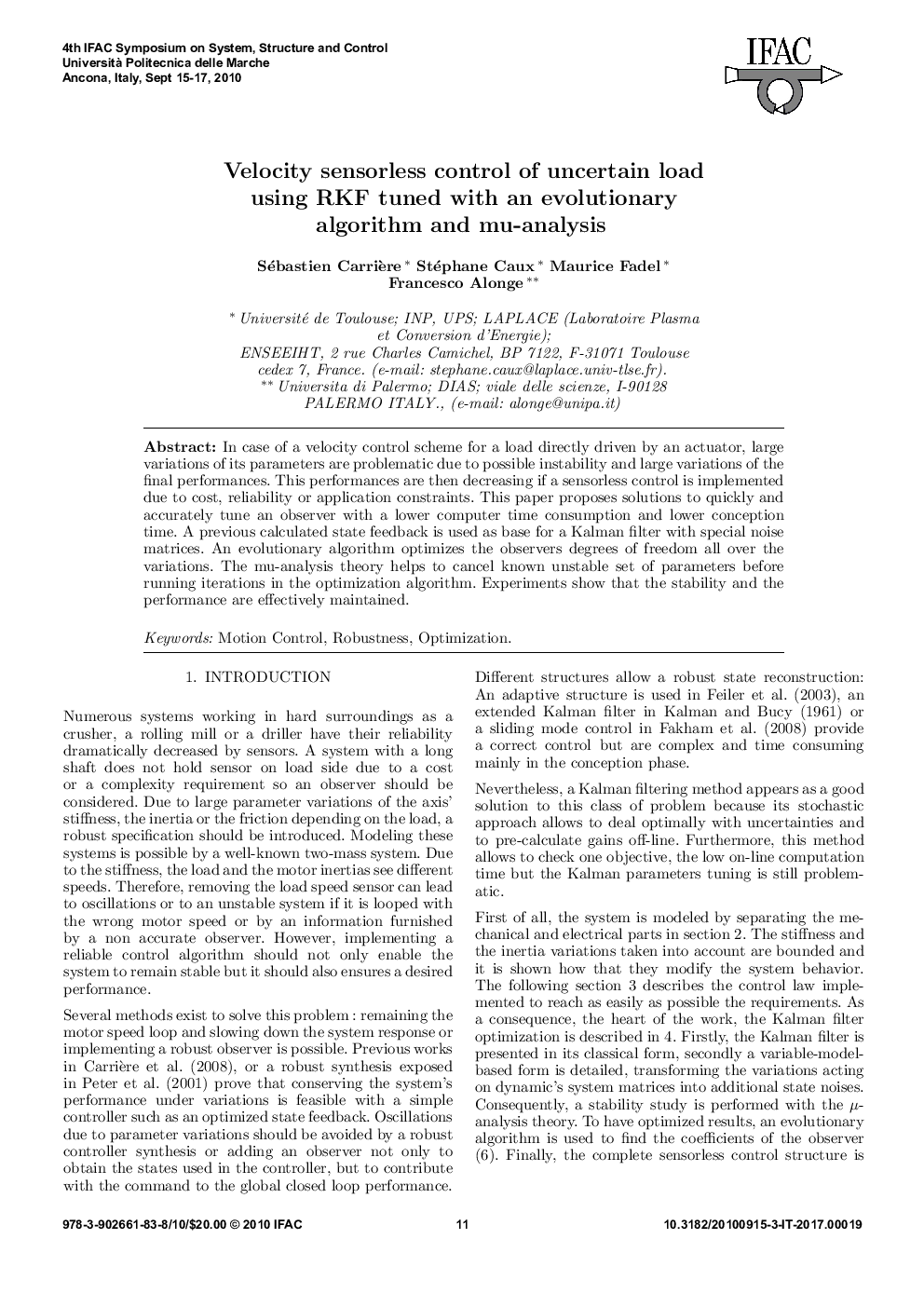| Article ID | Journal | Published Year | Pages | File Type |
|---|---|---|---|---|
| 715063 | IFAC Proceedings Volumes | 2010 | 6 Pages |
In case of a velocity control scheme for a load directly driven by an actuator, large variations of its parameters are problematic due to possible instability and large variations of the final performances. This performances are then decreasing if a sensorless control is implemented due to cost, reliability or application constraints. This paper proposes solutions to quickly and accurately tune an observer with a lower computer time consumption and lower conception time. A previous calculated state feedback is used as base for a Kalman filter with special noise matrices. An evolutionary algorithm optimizes the observers degrees of freedom all over the variations. The mu-analysis theory helps to cancel known unstable set of parameters before running iterations in the optimization algorithm. Experiments show that the stability and the performance are effectively maintained.
